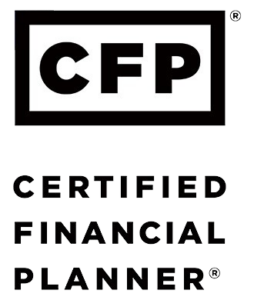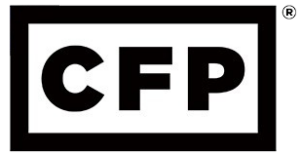Is a CERTIFIED FINANCIAL PLANNER® (CFP®) for You?
While more and more of us are of the “do-it-yourself” mindset, it doesn’t hurt having some guidance when we’re not quite sure what direction to take.
Admit it, the last time you assembled something without reading the directions the experience went worse than expected, right? You swear that next time you’ll make a point to read them first.
Well this is no different, and should be considered your “next time” opportunity. What we’re talking about here isn’t furniture but decisions, big or small, that directly impact your overall success.
Embrace Accountability with a CFP®
Financial planning can also become more complicated than we’re willing to admit. It involves a certain level of self-discovery and accountability that can make even the best of us uncomfortable.
Working with a trusted advisor compels you to set aside time to make yourself a priority. It also creates a safe space to openly discuss your goals, concerns, and ideas, which may be difficult to do with friends and family.
So with all the titles and designations out there, how do you sort the good from the bad? Requiring that your advisor commits to the CERTIFIED FINANCIAL PLANNER® standards of Education, Examination, Experience, Ethics and Enforcement is a good place to start.
Selecting the Right CFP® for Your Journey
When choosing a CFP®, it’s important to look for someone who resonates with your personal and financial goals. This means finding an advisor who not only has the necessary qualifications but also understands your unique financial situation and aspirations. Look for someone who listens actively, communicates clearly, and is willing to build a long-term relationship based on trust and transparency.
Building a Financial Roadmap Together
A CFP® doesn’t just provide advice; they work with you to develop a comprehensive financial plan. This plan is your roadmap, outlining steps to achieve your financial objectives, whether it’s saving for retirement, investing wisely, or managing debt. Your CFP® will help you understand the complexities of the financial world, making it easier for you to make informed decisions.
Facing Financial Challenges with Confidence
With a CFP® by your side, financial challenges become less daunting. Whether it’s navigating market volatility, changing career paths, or adjusting to life events like marriage or parenthood, your CFP® can offer strategies to help you stay on track. Their expertise becomes your asset in facing any financial uncertainty.
Conclusion
Remember, financial planning is not a one-time event but a continuous journey. With a CFP®, you’re not just planning for today but also laying the foundation for a secure and prosperous future. Embrace this opportunity to take control of your finances with a professional who is committed to your success.
This is your chance to prioritize your financial well-being. Don’t hesitate to seek the expertise and guidance of a CERTIFIED FINANCIAL PLANNER®. Your future self will thank you for making this wise decision.

Unlike many financial advisors, CERTIFIED FINANCIAL PLANNER® professionals are required to develop their theoretical and practical knowledge by completing a comprehensive course of study at a college or university with a curriculum approved by the CFP® Board. Planning professionals with training outside of the CFP® Board’s approved list may meet the education requirement through a review process, which looks at transcripts, previous course work, and other professional designations.
CERTIFIED FINANCIAL PLANNER® professionals must pass the comprehensive CFP® Certification Exam, which tests their ability to apply financial planning knowledge to real-life situations. The exam covers the financial planning process, tax planning, employee benefits and retirement planning, estate planning, investment management and insurance. The average pass rate for this difficult exam is only 55 percent to 60 percent. This comprehensive exam ensures that CERTIFIED FINANCIAL PLANNER® professionals are highly qualified to develop a plan for your finances.
CFP® professionals must have a minimum of three years’ experience in the financial planning process prior to earning the right to use the Certified Financial Planner® certification marks. This hands-on experience guarantees that CFP® professionals have practical financial planning knowledge, so you can count on them to help you create a realistic financial plan that fits your individual needs.
When it comes to financial planning, CERTIFIED FINANCIAL PLANNER® professionals are held to the highest of standards. CFP® Board’s Code of Ethics outlines CERTIFIED FINANCIAL PLANNER® professionals’ obligations to uphold principles of integrity, objectivity, competence, fairness, confidentiality, professionalism and diligence. The Rules of Conduct require CERTIFIED FINANCIAL PLANNER® professionals to put clients’ interests above their own, and to provide their financial planning services as a “fiduciary” — acting in the best interest of their financial planning clients. CFP® professionals are subject to sanctions if they violate these standards.
CFP® Board’s rigorous enforcement of its Standards of Professional Conduct — including releasing disciplinary information to the public — distinguishes the CFP® certification from the many other designations in the financial services industry. Anyone who seeks CFP® certification is subject to a background check, and those whose past conduct falls short of CFP® Board’s ethical and practice standards can be barred from becoming certified. After attaining certification, a CFP® professional who violates CFP® Board’s ethical and practice standards becomes subject to disciplinary action, which could include the permanent revocation of certification. Through diligent enforcement of its ethical and practice standards, CFP® Board provides you with the confidence that your CFP® professional is both competent and ethical.




